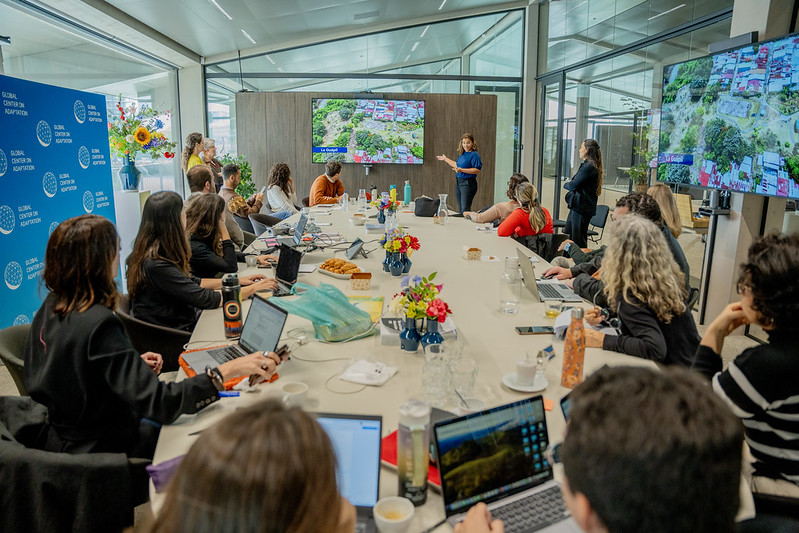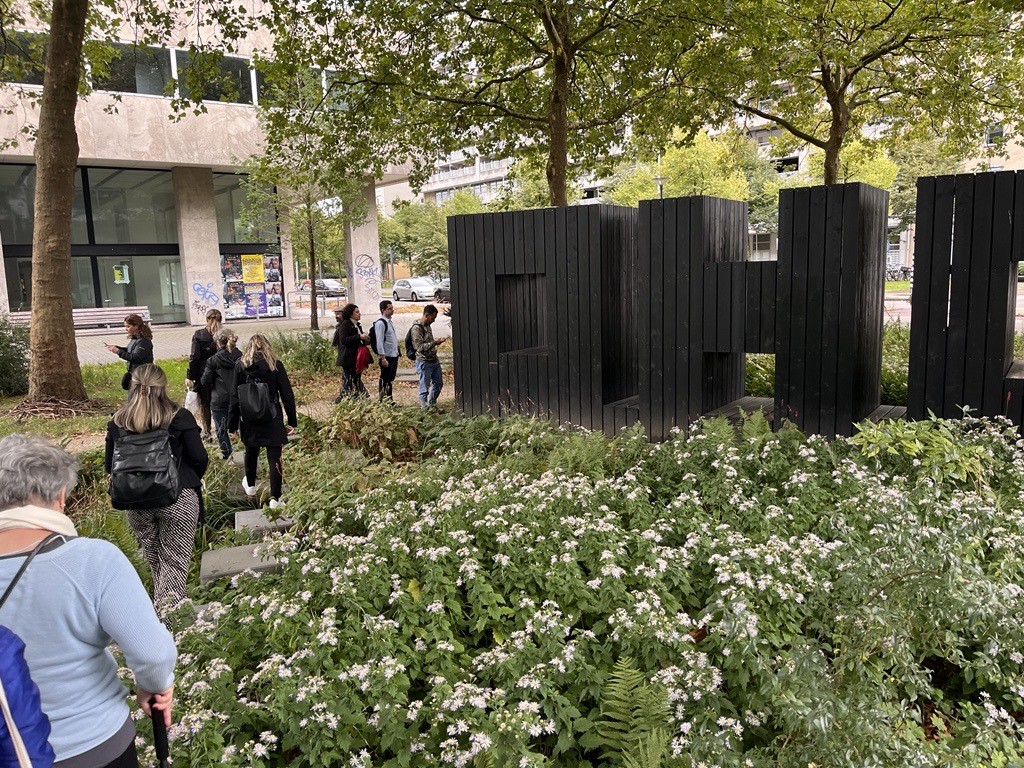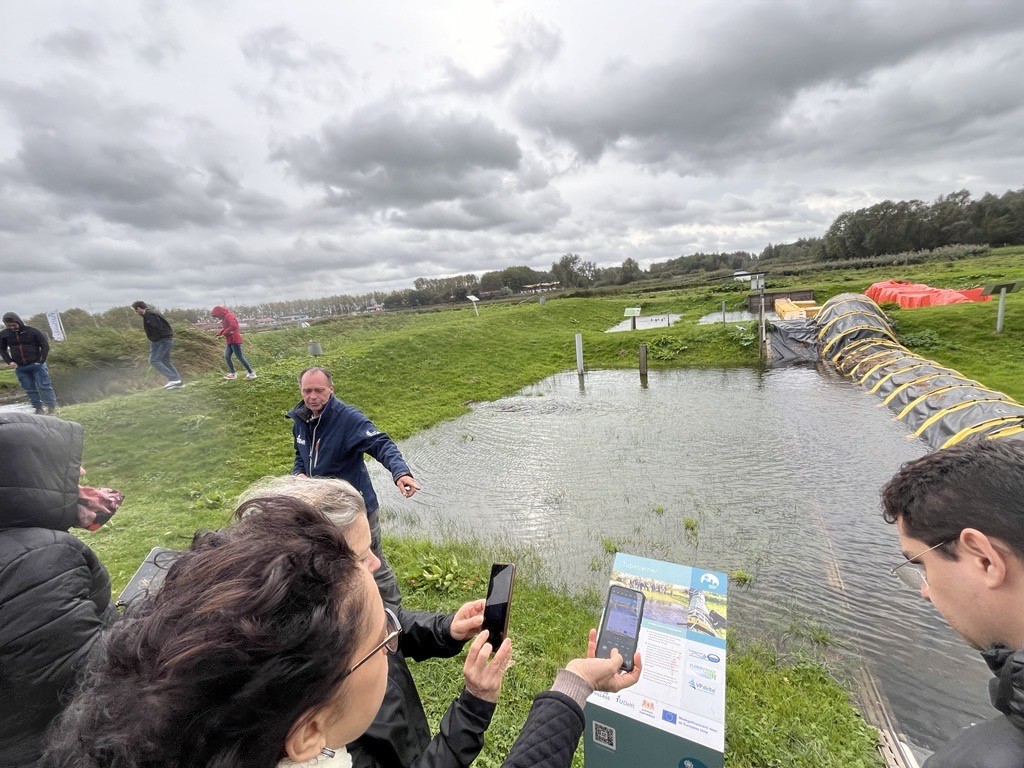Peer Exchange
PEOPLE-CENTERED AND CLIMATE RESILIENT PLACES: PEER-TO-PEER EXCHANGE FOR LATIN AMERICAN CITIES
Hosted in Rotterdam, this P2P Exchange will explore integrated and sustainable urban development strategies to fight climate change and promote livable neighborhoods.
UrbanShift Peer Exchange Participants in the GCA Headquarters
Across UrbanShift's network of cities in Latin America, increasing resilience to climate risks like flooding has become a pressing priority. Successful mitigation projects, however, extend beyond addressing core environmental issues—they also enhance the quality of life by creating inviting public spaces, fostering social connections, and beautifying urban environments.
During a weeklong Peer-to-Peer (P2P) Exchange to Rotterdam, UrbanShift brought together participants from Latin American cities, including San José (Costa Rica), Mar del Plata, Salta (Argentina), and Belém, Florianópolis, Teresina (Brazil), along with Project leads from Ciudades Sostenibles (Argentina), CITinova (Brazil), and TEVU (Costa Rica), and special guests from Brazil’s National Front of Mayors (FNP), and representatives from Porto Alegre and Niterói, Brazil. The purpose was to learn how to integrate placemaking best practices into urban climate resilience projects.

Rotterdam, known globally for its collaborative and innovative approach to urban development, offered a comprehensive perspective on urban climate resilience. Participants engaged with a wide network of Dutch experts from institutions such as the Global Center on Adaptation, Deltares, TU Delft, and the City of Rotterdam, gaining deeper insights into people-centered resilience strategies.

The timing of the P2P Exchange coincided with Placemaking Week Europe, an annual event featuring discussions and best practices on placemaking. Participants from Latin America not only attended the conference but also hosted an interactive workshop. During this session, they presented their in-progress resilience projects, inviting feedback and collaboration to strengthen their initiatives.

With Rotterdam's dynamic and innovative urban environment as the backdrop, this exchange spurred meaningful dialogues on strengthening resilience and building healthier, more connected communities. By the end of this insightful week, each delegation had developed a customized action plan to integrate the ideas and strategies discussed, ensuring continued collaboration with experts and institutions.
All event materials, including presentations and exercises, are available below.
AGENDA
PRESENTATIONS AND MATERIALS
PHOTOGRAPHS

UrbanShift Annual Report 2024-2025
UrbanShift's final Annual Report spans an impactful year of over 30 events and major progress across our network of 23 cities.

What's Next for the UrbanShift Network?
As the UrbanShift Global Platform concludes, the next phase of the GEF Sustainable Cities Impact Program will build on the momentum and progress for sustainable and resilient cities.

UrbanShift Labs
Summarizing insights and lessons from eight of UrbanShift's Labs, this report offers a template for furthering geospatial analysis in cities.

MULTILEVEL GOVERNANCE FOR INTEGRATED URBAN PLANNING
This report outlines key learnings and insights from UrbanShift's Multi-Level Governance Dialogues.

